Trial of Salman Rushdie's knife-wielding attacker begins
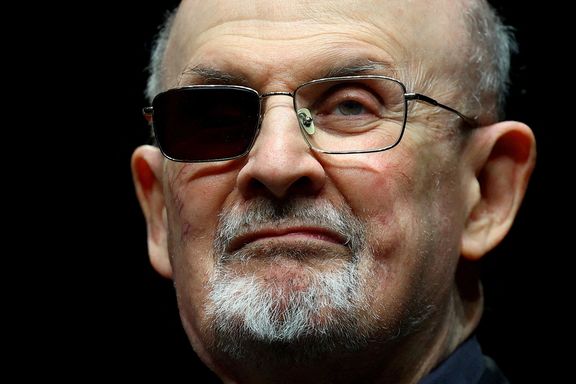
The trial began on Monday of a man accused of stabbing Salman Rushdie, the irreverent author menaced with a religious death warrant from Islamic Republic founder Ayatollah Ruhollah Khomeini.

The trial began on Monday of a man accused of stabbing Salman Rushdie, the irreverent author menaced with a religious death warrant from Islamic Republic founder Ayatollah Ruhollah Khomeini.
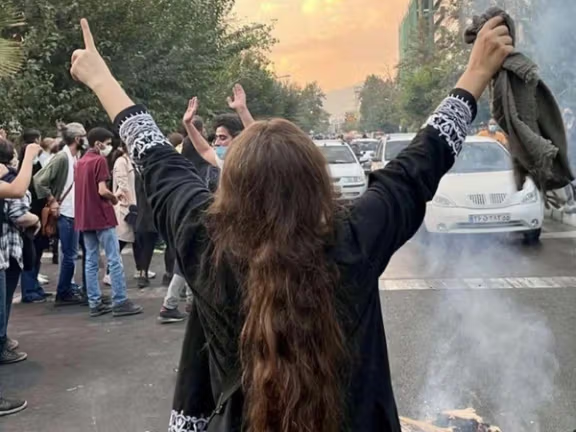
A young Iranian woman was arrested for appearing without a mandatory head covering and chanting "death to the dictator" in a public square in southwestern Iran on Monday, an eyewitness told Iran International.
The protest points to smoldering discontent even after authorities quashed by force a nationwide protest movement against clerical rule which began in 2022.
At the central clocktower square in the city of Yasuj, a young woman who appeared to be in her late 20s removed her headscarf and outer layer of clothes in the midst of a crowd according to the eyewitness, who declined to be identified for security reasons.
Dressed in a tank top and trousers, she chanted “Death to the dictator!” the source added. The slogan is a common refrain among dissidents against 85-year-old Supreme Leader and theocrat Ali Khamenei.
Iran International later obtained a video showing the woman chanting "Long Live the King".
Security forces promptly descended on the woman, wrapping her in a blanket and forcibly bundling her into a departing car.
A source, speaking to Iran International on condition of anonymity for security reasons, said two men were also arrested after attempting to defend her during the arrest.
The Woman, Life, Freedom movement in Iran was sparked by the death of a young woman, Mahsa Amini, in September 2022 while in police custody over hijab violations.
Hardliners have intensified efforts to enforce strict dress codes for women even as a new law on hijab enforcement appears to have lapsed and Javad Zarif, a relative moderate Iranian vice president, said the government aimed not to pressure women.
Despite the official statements and widespread public defiance, government measures to reinforce mandatory hijab laws have persisted, resulting in the closure of businesses and the impoundment of vehicles associated with hijab offenses.
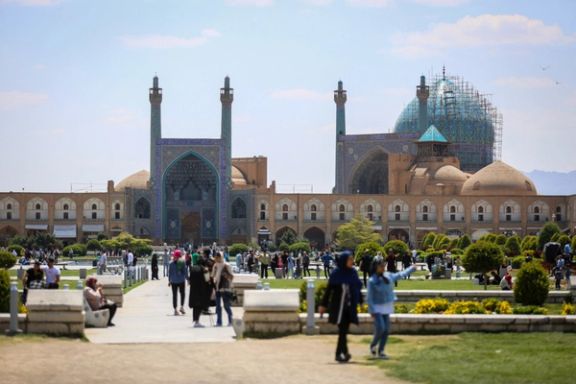
A crackdown on the Iranian Baha'is in Isfahan has prompted German-Iranians to urge the mayor of the southwestern German city of Freiburg to pull the plug on its municipal partnership with Isfahan.
The violent seizure of the eleven Baha’i women follows the October sentencing of ten Baha’i women in Isfahan to a total of 90 years in prison.
“Two days before the United Nations reviews Iran’s human rights record, it commits yet another senseless act against women who are completely innocent. Their so-called 'crime' was to serve their local communities, and now the Iranian government has detained them in violent home raids,” said Simin Fahandej, Representative of the Baha’i International Community to the United Nations in Geneva.
Iran International obtained a January 30 letter from Behrouz Asadi, the head of the Democratic Forum of Iranians in Mainz, to Freiburg’s mayor Martin Horn.
Asadi wrote “The municipal administration in Isfahan has actively cooperated with the security and intelligence forces to repress the Baha'is .” Asadi added that “You are setting an example that you are tolerating and overlooking the regime’s course of action and the human rights violations that are taking place there.”
Horn did not respond to requests by Iran International for comment. Freiburg is the only German city that has a twin city partnership with an Iranian city.
The German city of Weimar ended its attempted partnership with Shiraz in 2010 because Iranian officials on a trip to Germany refused to visit the Buchenwald concentration camp memorial in Weimar.
Freiburg launched its partnership with Isfahan in 2000.
Dr. Wahied Wahdat-Hagh, a German-Iranian political scientist, criticized Freiburg's partnership with Isfahan as hypocritical.
Iran, he said, has been oppressing women, crushing secular opposition, persecuting religious minorities and carrying out one of the highest execution rates globally.
“No one wanted to acknowledge at the time that Iran had already been a totalitarian dictatorship.”
Wahdat-Hagh, who is a Baha'i, is one of the world’s leading experts on the Baha'is in Iran. “The Freiburg Initiative did not want to know that Iran has wanted to destroy Israel since 1979 and had waged a war against Israel with the help of its proxies,” he added.
Assadi also noted in his letter to Horn that “Your partner city Isfahan is one of the places where the regime produces rockets, drones and bombs.” He noted that “the partnership is a status symbol of the regime with which it attempts to publicly whitewash its crimes.”
Iran’s military fired projectiles from Isfahan into Israel last year.
Michael Blume, the state commissioner tasked with fighting antisemitism, including Iranian government Holocaust denial, in the state of Baden-Württemberg, where Freiburg is located, has lashed out at Iranian dissidents opposed to Ali Khamenei’s government and has not called on Horn to end the partnership. Blume called Iranian dissidents “corrupt exiled nationalists.”
Ronai Chaker, a prominent activist from Germany’s Yazidi community who combats Islamism in the federal republic, told Iran International ”I find Freiburg's twin city partnership with Isfahan to be a scandalous betrayal of the values of democracy, human rights and Germany's historical responsibility toward the Jewish people."
"The systematic persecution of Baha'is, women, LGBTQ+ people and dissidents there is a clear human rights violation.”
In 2017, the Iranian authorities arrested more than 30 men suspected of being homosexuals at a private party last week in the Isfahan province.
Chaker said “The city of Freiburg must end this partnership immediately. Anyone who continues to cling to the relationship with Isfahan is complicit in the crimes of the mullahs' regime.”
She also took Blume to task for his reported enabling of the partnership. “Due to his silence and his lack of a critical attitude towards this twin city partnership, Blume has lost all credibility as an antisemitism representative. His resignation would be a logical step. Freiburg must clearly distance itself from Isfahan instead of giving the Iranian regime legitimacy through such partnerships.”
The Iranian dissident Sheina Vojoudi, who lives in Germany, previously said “Blume called people like me ‘corrupt exiled nationalists’ after I showed him leaked footage of Evin prison.”
Blume has refused to comment.
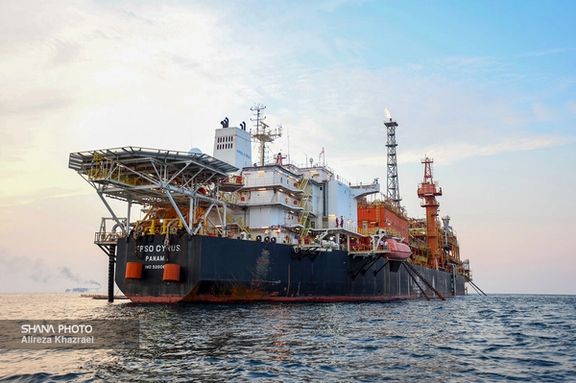
The United States imposed new sanctions last week on an international network accused of transferring Iranian oil to China, the first such measure under President Donald Trump’s so-called maximum pressure policy on Iran.
The US Treasury Department said the network has transported millions of barrels of Iranian crude oil, generating hundreds of millions of dollars used to fund Iran’s armed forces and Tehran's allies in the region.
Who is targeted by these sanctions?
The sanctions primarily target Sepehr Energy, a front company allegedly financing Iran’s General Staff of the Armed Forces, according to the Treasury.
A secret fleet of oil tankers and transport management firms involved in smuggling Iranian oil has also been blacklisted.
Sepehr Energy, established in 2010, has been linked to key figures in Iran’s petrochemical sector, with investments in methanol and ammonia plants.
Additionally, several individuals and three oil tankers registered under Panamanian and Hong Kong flags have been sanctioned.
Why now?
President Trump said during his campaign that he would resume his so-called maximum pressure policy against Iran once he's in office.
The main driver, as confirmed by the administration, is concern that Tehran might be closer than ever to a nuclear weapon.
“We will use all available tools to hold Iran accountable for its destabilizing activities and pursuit of nuclear weapons,” a Treasury spokesperson said.
The sanctions are enforced by the Departments of Treasury, State, and Justice. The Trump administration asserts that these steps are necessary to protect national security and that of its allies.
What do the sanctions aim to do?
The sanctions are structured around several coordinated measures, implemented by multiple US agencies:
The US aims to pressure Iran’s main oil buyers, particularly China, to halt purchases of Iranian crude, impacting Tehran’s foreign currency reserves. There may also be attempts, with US allies' help, to intercept and seize Iranian oil shipments on international routes.
Previously granted exemptions, such as those for Chabahar Port development projects, are now under review and likely to be canceled.
The US will target accounts, shell companies and funding channels associated with the Islamic Revolutionary Guard Corps (IRGC).
Iranian government assets within the US and abroad, deemed by Washington to be involved in financing terrorism or evading sanctions, will be seized.
Dual-use goods with both civilian and military applications will face tighter controls.
What else?
The US Department of Justice will prosecute individuals involved in espionage, cyber threats, and terrorism financing on behalf of Iran.
The Department of State will lead an international campaign to limit Iran’s influence in global organizations, pressure its allies and restrict travel by Iranian officials.
What would be the implications for Iran?
These sanctions could significantly reduce Iran’s oil revenues, deplete its foreign currency reserves, and trigger higher inflation and a decline in the rial’s value.
Seizing oil shipments may also disrupt Iran’s unofficial export channels.
As pressure mounts, Iran may reduce cooperation with the International Atomic Energy Agency (IAEA) or strengthen ties with countries such as China and Russia.
Given Iran’s regional influence, the sanctions could heighten tensions in the Persian Gulf, Red Sea and along the borders of Syria and Lebanon.
Iran may retaliate by ramping up uranium enrichment or boosting the capabilities of its regional allies.
What are the challenges in implementing the sanctions?
Despite the sanctions’ scope, implementation faces hurdles.
China may continue purchasing Iranian oil, while Iran’s extensive experience with informal financial networks could help it maintain some oil sales through intermediaries.
Economic pressure could provoke countermeasures from Iran, regionally or through its nuclear program.
Trump’s return to the maximum pressure strategy aims to curtail Iran’s influence, but its success depends on how serious the administration is in enforcing the measures and how cooperative other major international players are.
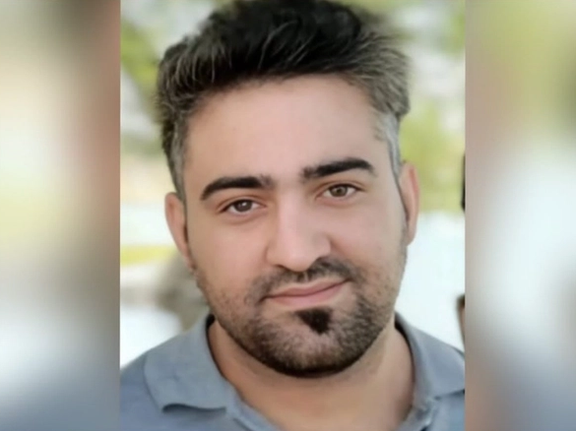
An Iranian court has sentenced a protester arrested during the 2022 Women, Life, Freedom protest uprising to death and two others to lengthy prison terms, France-based Kurdistan Human Rights Network (KHRN) reported on Monday.
Pezhman Soltani, 32, was convicted of premeditated murder and sentenced to death under qisas, retribution-in-kind, which allows the victim’s family to demand execution under Islamic law, KHRN said.
Two other men, Rizgar Beygzadeh Baba-Miri, 47, and Ali Soran Ghassemi, 28, were sentenced to 15 years and 10 years and one day in prison, respectively, for "complicity in murder." A fourth defendant, Kaveh Salehi, 42, was acquitted.
The verdicts were issued in December last year by a criminal court in Iran's West Azerbaijan Province and delivered to the defendants in prison on January 15, KHRN added.
A separate case against the four men and a fifth prisoner, Javanmard Mam-Khosravi, remains open at the Islamic Revolutionary Court of Orumiyeh in northwestern Iran on charges including enmity against God or moharebeh, armed insurrection or baghi and collaboration with hostile states.
KHRN said the case has been delayed due to complaints by the men that Ministry of Intelligence interrogators used torture to extract forced confessions.
On July 14, 2024, the IRGC-affiliated Tasnim News Agency broadcast what KHRN described as forced confessions from four of the prisoners.
The group said the men had been subjected to months of physical and psychological torture at an intelligence detention center in Orumiyeh before being moved to Orumiyeh Central Prison. During this time, they were denied access to lawyers and family visits.
The five were arrested in April and May 2023 after taking part in the nationwide protests in Bukan, West Azerbaijan Province, and Baneh, Kurdistan Province.
Last December, Amnesty International warned that at least 10 individuals in Iran remain on death row in connection with the Woman, Life, Freedom protests of 2022 sparked by the death in custody of Mahsa Amini over an alleged hijab law violation.
The rights group said Iranian authorities had arbitrarily executed 10 others after "grossly unfair sham trials" and subjected many detainees to torture, including beatings, electric shocks, and sexual violence.
Amnesty raised concerns over further executions amid what it described as an "ongoing execution spree."
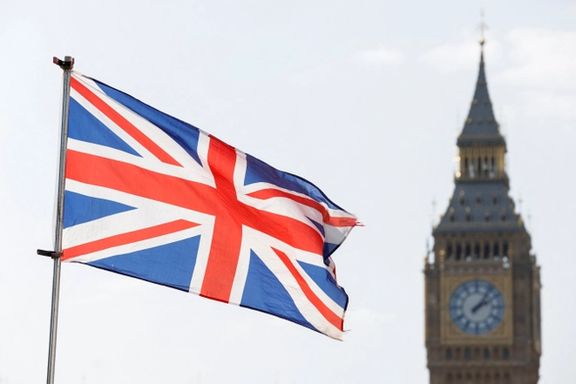
The British government has not funded Iran's influence network in Western countries, the UK Foreign Office told Iran International, rejecting remarks by a Swedish-Iranian scholar who said his involvement in the scheme was backed by the UK government.
"We have no record of funding for the IEI or any departmental work with them," the UK Foreign Office said in response to an inquiry about funding for the Iran Experts Initiative (IEI), a network linked to Iran’s Ministry of Foreign Affairs.
In late January, a report by Sweden’s TV4 revealed Roozbeh Parsi, the director of the Swedish Institute for International Affairs’ Middle East program, was involved in the IEI, a network formed by Tehran to expand its influence in the West.
Parsi denied any cooperation with the Iranian government, saying his participation in the Iran-led initiative was backed up by the UK government.
"I was doing this on behalf of the British Foreign Office," he wrote in a response published by Expressen, one of Sweden's most prominent dailies, on January 31. "For the British Foreign Office, which financed our participation, and other governments in the West, it was about strengthening their positions ahead of the negotiations on [Iran's] nuclear program."
The Swedish media's investigation, which cited emails provided by Iran International, followed a 2023 joint exposé by Iran International and Semafor that detailed Tehran’s efforts to cultivate relationships with academics and analysts abroad to expand its soft power.
Inquiry into allegations
In 2023, a spokesman for the European Council of Foreign Relations (ECFR) also told Iran International that "the Iran Expert Initiative was a European-government backed initiative that ECFR staff sometimes took part in but did not lead on."
The ECFR spokesman declined to name the European government.
Samafor's Steve Clemons cited in 2024 a British government source as saying that the funding came from London.
Sweden's Foreign minister Maria Malmer Stenergard said on Thursday the country had launched an inquiry into allegations that Parsi was involved in the Tehran-led influence network aimed at shaping Western policy.
The top diplomat said the government had contacted the Swedish Institute of International Affairs for more information, calling the allegations “very serious.”
She warned that Iran, along with Russia and China, is conducting extensive intelligence operations in Sweden.
Hadi Matar, a 27-year-old American whose parents are of Lebanese Shi'ite extraction, pleaded not guilty to second-degree attempted murder and assault.
Jurors in the Mayville, New York courtroom have heard the prosecutor's opening statements on how the knife attack at a 2022 New York lecture unfolded in a matter of seconds, leaving Rushdie blinded in one eye and fighting for his life in hospital.
Moments before 77-year-old Rushdie was stabbed on stage, a poet was introducing the book event on the topic of keeping writers safe from harm, Chautauqua District Attorney Jason Schmidt told the jury according to Reuters.
The defendant is accused of running on stage and stabbing Rushdie up to 10 times. The attack also damaged Rushdie’s liver and paralyzed one hand.
Matar’s defense team has questioned the neutrality of police officers’ testimony.
Lynn Schaffer, an assistant public defender here in Chautauqua County, opened her remarks by saying it was an honor to defend Matar and argued that the case and sequence of events is not straightforward, a BBC journalist attending the trial said.
Matar’s lead defense lawyer, Nathaniel Barone, was absent due to illness.
Who is Hadi Matar?
In July 2024, two years after the incident, an unsealed indictment charged the defendant with providing material support to Iran-backed Hezbollah, sometime between September 2022 and August 2022.
The indictment did not specify how Matar is linked to the group.
In an interview with the Daily Mail, Matar's mother told the outlet that her son went on a month-long trip to the Middle East in 2018 and came back radicalized.
Rushdie was forced to spend about 10 years in hiding throughout the United Kingdom and United States for much of the 90s after Khomeini issued a fatwa or religious edict to kill the author.
Khomeini called on “the proud Muslim people of the world” to kill the author of “The Satanic Verses,” which centered on the life of the Prophet Mohammad.
The trial is expected to last up to 10 days, the Associated Press reported.
Rushdie who released a memoir after the attacked called Knife, is expected to take the stand and come face-to-face with his would-be murderer later in the trial.